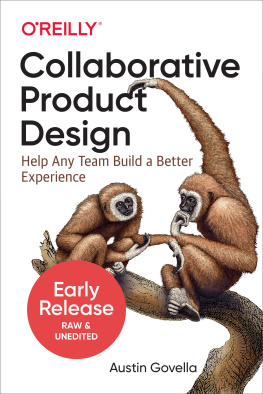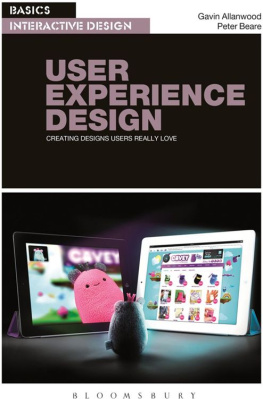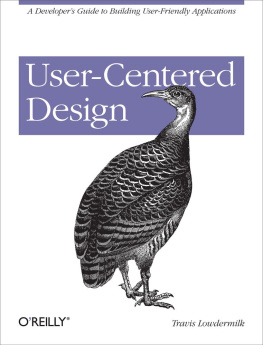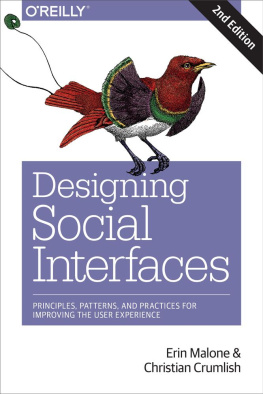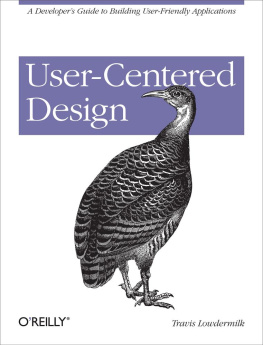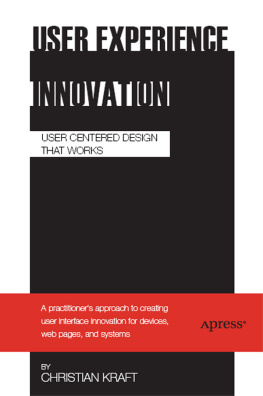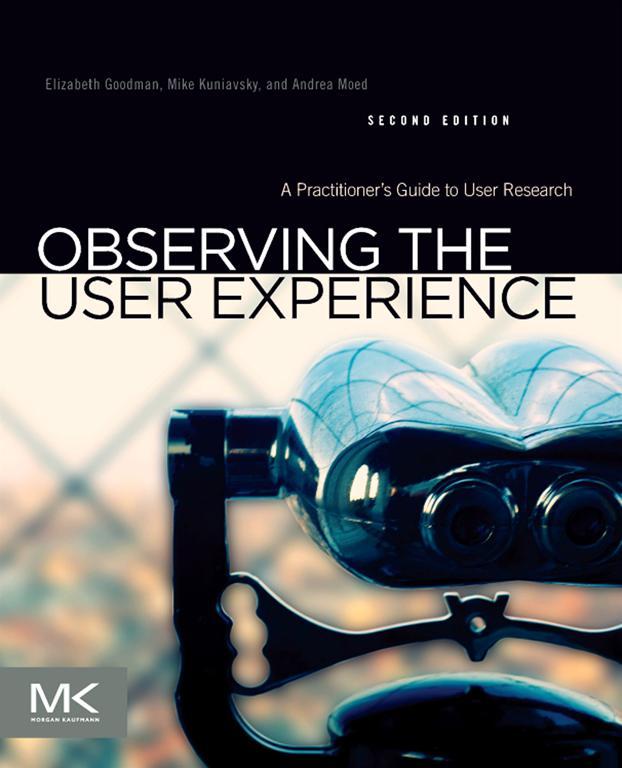Copyright
Acquiring Editor: Meg Dunkerley
Development Editor: Heather Scherer
Project Manager: Andre Cuello
Designer: Joanne Blank
Morgan Kaufmann is an imprint of Elsevier
225 Wyman Street, Waltham, MA 02451, USA
2012 Elsevier, Inc. All rights reserved.
No part of this publication may be reproduced or transmitted in any form or by any means, electronic or mechanical, including photocopying, recording, or any information storage and retrieval system, without permission in writing from the publisher. Details on how to seek permission, further information about the Publishers permissions policies and our arrangements with organizations such as the Copyright Clearance Center and the Copyright Licensing Agency, can be found at our website: www.elsevier.com/permissions.
This book and the individual contributions contained in it are protected under copyright by the Publisher (other than as may be noted herein).
Notices
Knowledge and best practice in this field are constantly changing. As new research and experience broaden our understanding, changes in research methods or professional practices, may become necessary. Practitioners and researchers must always rely on their own experience and knowledge in evaluating and using any information or methods described herein. In using such information or methods they should be mindful of their own safety and the safety of others, including parties for whom they have a professional responsibility.
To the fullest extent of the law, neither the Publisher nor the authors, contributors, or editors, assume any liability for any injury and/or damage to persons or property as a matter of products liability, negligence or otherwise, or from any use or operation of any methods, products, instructions, or ideas contained in the material herein.
Library of Congress Cataloging-in-Publication Data
Kuniavsky, Mike.
Observing the user experience : a practitioners guide to user research / Mike Kuniavsky, Elizabeth Goodman, Andrea Moed. -- 2nd ed.
p. cm.
Includes bibliographical references and index.
ISBN 978-0-12-384869-7 (pbk.)
1. User-centered system design. 2. Observation (Scientific method) I. Goodman, Elizabeth, 1976- II. Moed, Andrea. III. Title.
TA166.K86 2012
004.21--dc23
2012014674
British Library Cataloguing-in-Publication Data
A catalogue record for this book is available from the British Library.
ISBN: 978-0-12-384869-7
For information on all MK publications visit our website at http://store.elsevier.com
Printed in the United States of America
12 13 14 10 9 8 7 6 5 4 3 2 1

Biographies
Mike Kuniavsky is a user experience designer, researcher, and author. A 20-year veteran of digital product development, Mike is a consultant and the co-founder of several user experience-centered companies: ThingM manufactures products for ubiquitous computing and the Internet of Things; Adaptive Path is a well-known design consultancy. He is also the founder and organizer of Sketching in Hardware, an annual summit on the future of tools for digital product user experience design for leading technology developers, designers, and educators. Mike frequently writes and speaks on digital product and service design and works with product development groups in both large companies and startups. His most recent book is Smart Things: Ubiquitous Computing User Experience Design.
Andrea Moed believes that research is essential in designing to support human relationships. She has been a design researcher and strategist for over 15 years, observing users of websites, phones and other mobile devices, museums, retail environments, and educational and business software. She is currently the Staff User Researcher at Inflection, a technology company working to democratize access to public records. Andrea has masters degrees from the Interactive Telecommunications Program at New York University and the UC Berkeley School of Information and has taught at the Parsons School of Design in New York. Her writing on design and technology has appeared in a variety of publications.
Elizabeth Goodmans writing, design, and research focus on interaction design for mobile and ubiquitous computing. Elizabeth has taught user experience research at the University of California, Berkeley and site-specific art practice at the San Francisco Art Institute. As well, she has worked with exploratory user experience research teams at Intel, Fuji-Xerox, and Yahoo! Elizabeth speaks widely on the design of mobile and pervasive computing systems at conferences, schools, and businesses. She has a masters degree in interaction design from the Interactive Telecommunications Program at New York University. Her scholarly research on interaction design practice has been supported by a National Science Foundation Graduate Fellowship and an Intel Ph.D. Fellowship.
Preface
Why This Book?
Many people in digital product and service development never do user research. We often hear people say things like: Putting a product in front of consumers will be expensiveand besides, we need to ship next month! Or: Usability research limits design creativity. And: Its not even necessary because the developers are themselves part of the community of users and thus instinctively empathetic to what those other users find useful or usable. Finally: And besides, [insert the name of famous company here] doesnt do it!
You, clearly, think otherwise. You think its important to know who is using the products youre making. And, you know, youre right. Finding out who your customers are, what they want, and what they need is the start of figuring out how to give it to them. Your customers are not you. They dont look like you, they dont think like you, they dont do the things that you do, they dont share your expectations, assumptions, and aspirations. If they did, they wouldnt be your customers; theyd be your competitors.
This book is designed to help you bridge the gap between what you think you know about your users and who they really are. Its not an academic treatise. Its a toolbox of concepts to understand how people experience products and services. The techniquestaken from the worlds of human-computer interaction, marketing, and many of the social scienceshelp you know who your users are, to walk in their shoes for a bit.
In addition, the book is about the business of creating usable products. It acknowledges that product development exists within the complexities of a business venture, where the push and pull of real-world constraints do not always allow for an ideal solution. User research is a dirty business, full of complexities, uncertainties, and politics. This book will, if it serves its purpose, help you tame some of that chaos. It will help you gain some clarity and insight into how to make the world a little better by making products and services more thoughtfully.




